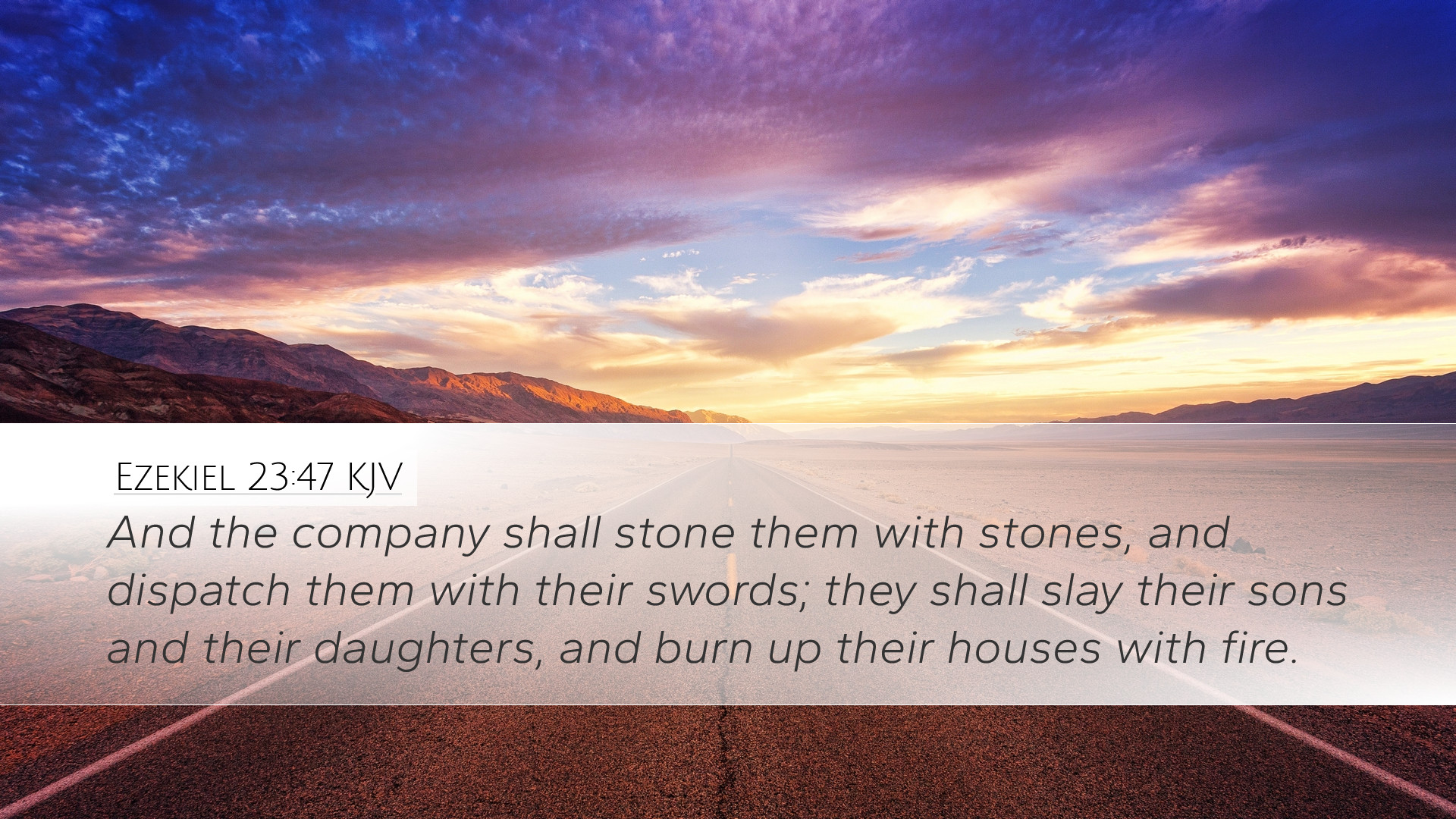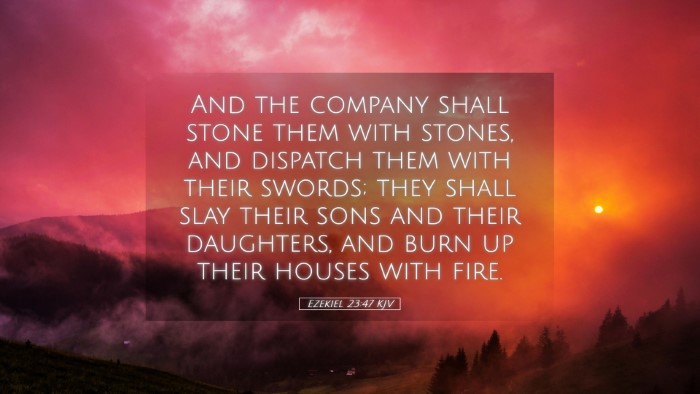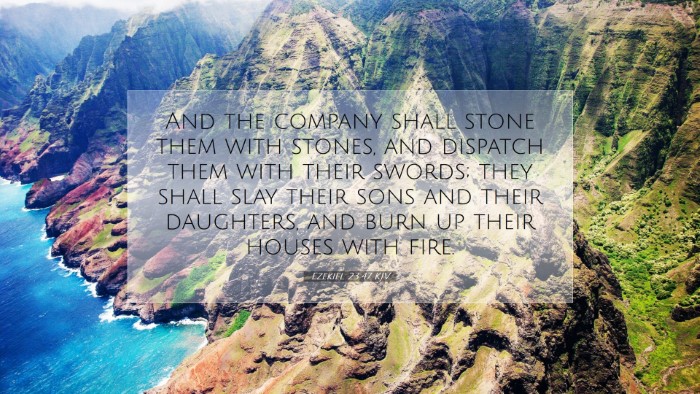Ezekiel 23:47 Commentary
Bible Verse: "And the company shall stone them with stones, and dispatch them with their swords; they shall slay their sons and their daughters, and burn up their houses with fire."
Introduction
In Ezekiel 23:47, we find a powerful and dark pronouncement that unveils the severity of divine judgment against unfaithfulness and idolatry. This verse is part of a larger allegorical narrative in which Jerusalem and Samaria are personified as two sisters, Oholah and Oholibah, representing the two leading kingdoms of Israel and Judah during the times of their infidelity to God.
Context and Structure
This chapter serves as a pivotal moment in Ezekiel's prophetic ministry, as it encapsulates the consequences of spiritual prostitution. The stark imagery in this verse emphasizes the totality of judgment awaiting a corrupt and idolatrous people. The surrounding context delves deeply into the actions of these metaphorical sisters who played the harlot against Yahweh, leading to profound consequences.
Commentary Insights
1. Divine Retribution
Matthew Henry emphasizes that the passage illustrates how God’s covenant people, when they turn to idolatry, are subject to severe penalties. The people of Judah were warned of the disastrous effects of their infidelity and the imminent destruction that would follow. Henry highlights that the 'company' mentioned signifies the chastising agency of God—be it through foreign invaders or internal discord.
2. The Role of Punishment
Albert Barnes interprets the punishment detailed in this verse as emblematic of God's justice. The implications of stoning and slaying are seen as a fulfillment of the covenant curses spoken of in the Mosaic law (Deuteronomy 28). When God's people reject Him, they cease to be under His protective covenant, opening themselves to calamity.
3. Symbolism of Fire
Adam Clarke details the symbolic significance of fire in this context. He notes that the act of burning the houses signifies not only physical destruction but also the total obliteration of an identity built on idolatry. Clarke observes that fire in biblical literature often represents divine judgment and purification, suggesting that through this fiery judgment, God seeks to eradicate the presence of sin amongst His people.
Theological Implications
The stark revelations within Ezekiel 23:47 offer profound theological implications regarding sin, justice, and God's nature. This verse serves as a reminder of the severity of divine judgment and underscores the call for repentance and faithfulness towards God. It stands as an enduring warning for contemporary believers as well.
1. Understanding Judgment
The commentary by Henry reminds readers that divine judgment is not arbitrary; it is a structured response to deliberate unfaithfulness. This concept encourages believers to comprehend the seriousness of sin and to seek reconciliation with God. The justice of God shown here aligns with His love, as it desires restoration and purification rather than mere punishment.
2. The Call to Repentance
Barnes emphasizes that the aim of prophetic warning is not merely to foretell calamity but to call the people to repentance. The vivid depiction of punishment in Ezekiel serves as a call for spiritual renewal, urging believers to turn away from their transgressions and re-establish their covenant relationship with God.
3. The Place of Hope
Despite the grim imagery, Clark’s observations about fire also hint at a transformative process. Within the severe judgments portrayed, there lies a pathway to hope—a potential for purification and restoration. This duality invites scholars and theologians to reflect on God's grace amid judgment.
Practical Applications
For pastors, students, theologians, and Bible scholars, Ezekiel 23:47 teaches several valuable lessons:
- Awareness of Idolatry: Understanding what constitutes modern-day idolatry is crucial. Believers must consistently evaluate their loyalties and commitments against the backdrop of Scripture.
- Embracing Judgment as Correction: Recognizing God's judgment as a form of correction allows individuals and communities to respond appropriately to conviction and to consider pathways toward restoration.
- Pursuit of Holiness: The call for holiness remains prevalent. Believers are urged to pursue a lifestyle that is aligned with God’s commandments, realizing that spiritual unfaithfulness has serious consequences.
- Understanding the Nature of God: Grasping the characteristics of God's judgment, love, and desire for relationship invites believers into a deeper knowledge of His redemptive plan.
Conclusion
Ezekiel 23:47 serves as a poignant reminder of the extent of God's discontent towards unfaithfulness in covenant relationships. This verse calls for deep reflection among pastors, theological students, and scholars in understanding both the gravity of sin and the vastness of God’s enduring mercy. As such, it echoes throughout time, urging believers to bear the weight of their actions while holding onto the hope found in sincere repentance and restoration.


